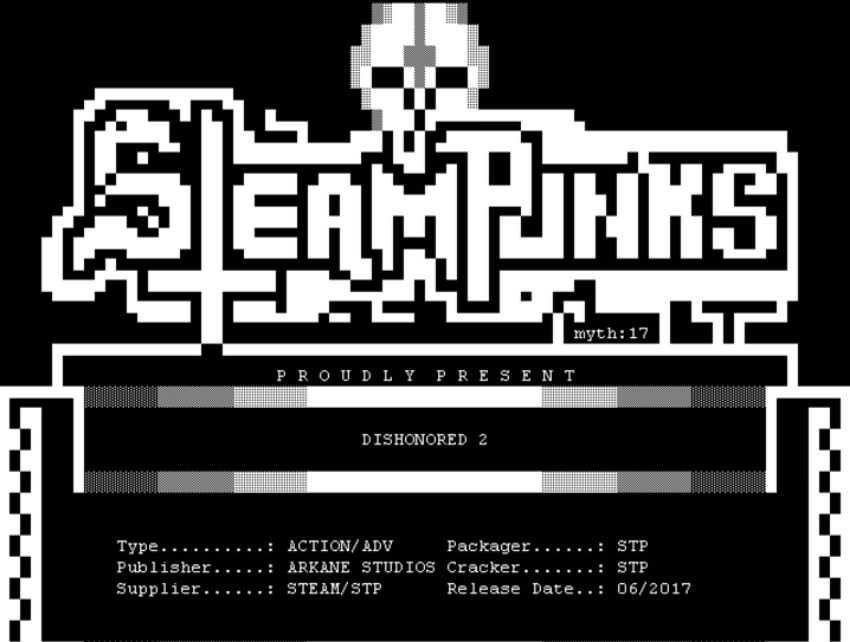SteamPunks: A release group that emerged from nowhere, managed to break the popular Dishonored 2 game but in a way very different from others. The unknown group SteamPunks released the first KeyGen (from the Key Generator) for Denuvo licenses.
It is known that the protection offered by Denuvo's anti-piracy system is the best currently available, and cracking methods presented so far were not perfect.
DISHONORED.2-STEAMPUNKS, released on top-site and released for the first time in the tent rather marks the beginning of the end of the protection of Denuvo.
The cracking scene, as it is known, keeps its gates closed for the general public, and the main players are groups we know from the past: ZWT, Core, DEViANCE, FAiRLiGHT, RELOADED, Razor 1911 and many others. The new SteamRunks group appears to be out of nowhere but on the other hand the crackers or the cracker behind it are probably relevant from the scene.
Traffic nfo shows that the band's members were related to the scene, as the record seems to have been created by a relative.
But what does the Dishonored 2 keygen do? The SteamPunks version contains code that allows the user to produce Denuvo licenses per hardware, that is, for each computer he uses.
Let's say that creation of a keygen requires several programming skills, or vice versa engineerings. The key maker instead of tampering with a few bytes of some dll or exe to bypass the protection with dubious results, should read and analyze the entire game-operating code to find out under what factors a key is created that unlocks all functions of the program. So there are many crackers, but few keygeners, as the whole process takes time and knowledge.





